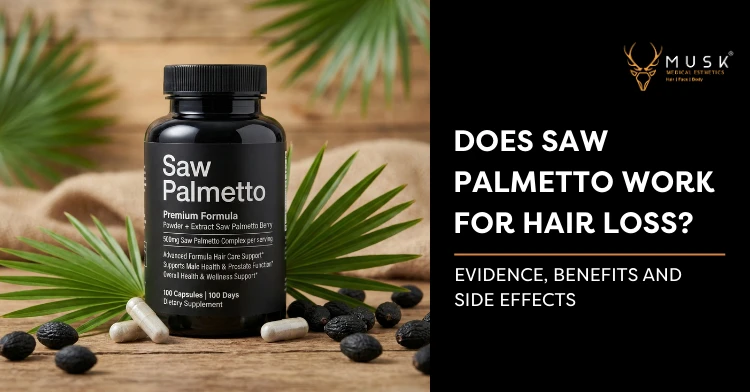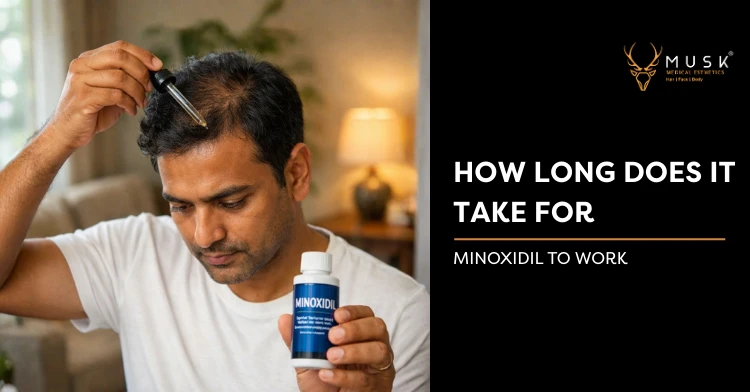Olive Oil for Hair Growth: Fact vs Fiction – Does It Really Work?
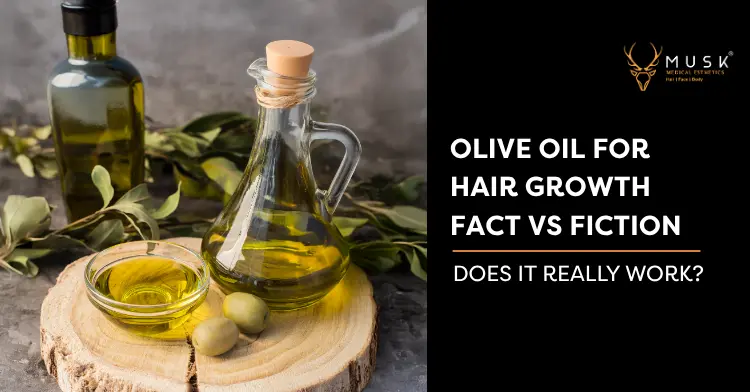
You've probably heard it: olive oil is "liquid gold" for your hair. It’s a natural tip passed down for ages, promising thicker, longer, and healthier hair. But does this old-world remedy work?
Let's get straight to the point. Olive oil is a fantastic conditioner. It can make your hair feel softer and look shinier. It also helps stop breaking.
But here is the fiction: The belief that olive oil can make new hair grow or cure hair loss is not true. Its main job is to protect and moisturize the hair you already have, not to create new hair.
At Musk Clinic, we want to give you clear, honest, and scientific facts. Our expert team, led by Dr. Anand B. Shah, believes in medical excellence. Natural oils are nice for hair care, but they are not a medical fix for hair loss.
Let's look at the science and separate the facts from the myths.
Key Takeaways
- Main Point: Olive oil is a great conditioner for hair, but it is not proven to grow new hair or stop pattern baldness.
- What It Does: It moisturizes, adds shine, and makes hair stronger. This stops hair from breaking off, which makes it seem like it's growing faster.
- Fact vs. Fiction: Fact: It has healthy fats that protect hair and soothe a dry scalp. Fiction: It is not a medical cure for hair loss. It does not block DHT, the hormone that causes baldness.
- The Real Fix: To truly grow new hair, you must treat the hair follicle (the root). Medical treatments like PRP Therapy or an ARTAS 9X Robotic Hair Transplant are designed to do this.
- Warning: Olive oil is very heavy. It can make thin hair greasy and may worsen fungal dandruff.
Understanding Olive Oil: Types, Composition, and What Makes It Work
Before we talk about what olive oil can do for your hair, let's understand what it is.
Olive oil is a natural juice extracted from olives. It is primarily made up of fatty acids, with oleic acid making up about 75% of its content. This omega-9 fatty acid is what gives olive oil its conditioning properties.
What Does Olive Oil Contain?
Here's what makes olive oil beneficial for hair:
- Oleic Acid (75%): A monounsaturated fat that deeply penetrates the hair shaft and locks in moisture.
- Palmitic Acid (11%): Helps strengthen hair and adds softness.
- Linoleic Acid (10%): An omega-6 fatty acid that supports scalp health.
- Antioxidants: Including vitamin E and polyphenols that protect hair from environmental damage.
- Squalene: A natural environment that softens and conditions.
Which Type of Olive Oil is Best for Hair?
Not all olive oils are the same. Quality matters when using it on your hair.
Extra Virgin Olive Oil (EVOO): This is the best choice. It's cold-pressed without heat or chemicals, so it keeps all its natural nutrients, antioxidants, and vitamins. This is what we recommend at Musk Clinic if you choose to use olive oil.
Virgin Olive Oil: The next best option. It's still minimally processed but has slightly fewer nutrients than EVOO.
Refined or "Light" Olive Oil: Avoid this for hair care. It's been heavily processed with heat and chemicals. Most of the beneficial compounds have been stripped away.
The Bottom Line: Always choose extra virgin olive oil for hair treatments. Store it in a cool, dark place to preserve its quality and prevent it from going rancid.
What Does Olive Oil Do for Your Hair?
First, let's talk about what olive oil can do. Its benefits for hair health are very real. Think of it as a deep conditioning treatment, not a hair-growing one.
Olive oil's main power is hydration. It is full of healthy fats (like oleic acid) that can sink deep into the hair strand.
Here are the facts about its benefits:
1. It's a Great Moisturizer
The Problem: Dry, brittle hair feels rough and looks dull.
Olive Oil's Fix: The oil sinks into the hair and locks in moisture. This smooths the hair's outer layer, making it feel soft and look shiny. It’s a great natural way to fight frizz.
2. It Helps Stop Breakage
The Problem: Dry hair is weak. It snaps and breaks when you brush or style it. This leads to split ends and stops your hair from getting longer.
Olive Oil's Fix: By moisturizing your hair, olive oil makes it more flexible and stronger. Flexible hair is less likely to break. This is the most important fact to know. When your hair stops breaking, it keeps its length. You are not growing more hair; you are keeping more of the hair you grow.
3. It Can Soothe a Dry Scalp
The Problem: A dry, tight, and itchy scalp is often just from a lack of moisture.
Olive Oil's Fix: Olive oil has properties that can calm irritation. Massaging a small amount onto a dry scalp can help it feel less itchy and more comfortable. A healthy scalp is a good base for healthy hair.
4. It May Provide Sun Protection
The Problem: UV radiation from sunlight can damage your hair's protein structure, making it weak, brittle, and discolored.
Olive Oil's Fix: The natural antioxidants in olive oil (especially vitamin E and polyphenols) may help reduce oxidative stress caused by sun exposure. While it's not a replacement for a hat or UV-protectant hair products, applying olive oil before sun exposure may offer some protection to your hair strands.
The Science: One study on mice found that using olive oil topically after UV exposure reduced skin damage. However, using it preventively before exposure did not show the same protective effect. More human studies are needed to confirm these benefits for hair.
5. It May Provide Sun Protection
The Problem: Scalp inflammation can cause redness, tenderness, itching, and may contribute to some types of hair loss.
Olive Oil's Fix: Olive oil contains oleocanthal, a type of phenol with anti-inflammatory properties similar to ibuprofen. When ingested, olive oil is known to reduce inflammation throughout the body.
Important Note: While olive oil is proven to reduce inflammation when eaten, there is limited evidence that applying it topically to the scalp has the same effect. One study found it helped treat scalp psoriasis when mixed with honey-derived ingredients, but more research is needed.
6. It May Have Antimicrobial Qualities
The Problem: Fungal and bacterial infections on the scalp can cause dandruff, itching, and inflammation.
Olive Oil's Potential: Laboratory studies have shown that olive oil has some antimicrobial and antifungal properties. One study found it reduced candida (a type of yeast) by 50% in test tubes.
The Reality Check: This doesn't mean olive oil can treat fungal scalp infections in real-world use. In fact, for common fungal dandruff (caused by Malassezia yeast), olive oil may feed the fungus and make the condition worse. We'll discuss this more in the risks section.
The Big Myth: Can Olive Oil Stop Hair Loss or Grow New Hair?
This is where home remedies and real medicine split apart. Olive oil is great for the hair shaft (the part you see). It does very little for the hair follicle (the living root under the skin where hair is made).
No. There is no strong scientific proof that olive oil can stop pattern baldness or make new hair grow.
Let's bust the three biggest myths we hear.
The Science Behind the Claims: What Studies Actually Show
You may have read online that olive oil "stimulates hair growth." This claim comes from one small laboratory study published in 2015. Here's what really happened:
The Study: Researchers applied oleuropein (a compound found in olives and olive leaves) to the skin of mice. The mice experienced increased hair growth, and their hair follicles became larger.
Why This Doesn't Apply to Humans:
- Concentration Matters: The study used a purified, concentrated extract of oleuropein. Regular olive oil contains much smaller amounts of this compound. You would need extremely high concentrations that are impossible to achieve by simply applying olive oil to your scalp.
- Species Difference: Mouse skin and human scalps have very different absorption rates and follicular structures. What works on a mouse doesn't automatically work on humans.
- No Human Trials: To date, no clinical trials on humans have proven that olive oil can stimulate hair growth or prevent hair loss from any type of alopecia.
Our Medical Take: Until proper human clinical trials are conducted, the only scientifically proven way olive oil helps hair is by conditioning and moisturizing it, which reduces breakage. This is a cosmetic benefit, not medical treatment for hair loss.
1. Fiction: "Olive Oil Stops the Hair Loss Hormone (DHT)"
The Claim: You may read online that olive oil can stop the hormone (DHT) that causes hair loss.
The Reality: This is not proven. DHT-driven hair loss is a medical and genetic issue. Rubbing oil on your head will not stop this process. Real DHT blockers are medicines prescribed by a doctor.
2. Fiction: "My Hair Grew Faster When I Used It!"
The Claim: Someone uses an olive oil mask, and two months later, their hair is longer.
The Reality: This is easy to mix up. Your hair did not grow faster. It broke less.
Think of it this way: Your hair is always growing from the root. But if the ends are dry and brittle, they snap off. Olive oil conditions the ends and stops this breakage. So, the length you are growing is no longer breaking off. It looks like new growth, but it's really just length retention.
3. Fiction: "Olive oil Cures All Dandruff"
The Claim: Because it helps a dry scalp, people think it fixes all dandruff.
The Reality: This can be a big mistake. There are two main types of dandruff:
- Dry Scalp Dandruff: These are small, white, dry flakes. Olive oil can help moisturize this.
- Fungal Dandruff: This is more common. It's caused by a type of yeast (fungus) on your scalp. This fungus feeds on oil. If you put olive oil on this type of dandruff, you are feeding the fungus. It can make your itching and flaking much worse.
An Expert Insight from Musk Clinic
At Musk Clinic, we've talked with thousands of patients. Many come to us after years of trying home remedies. They are frustrated because their hair loss is still getting worse.
Here is the core insight we share from our medical team:
The hair you see is dead tissue. You can make it soft and shiny with oil, but you cannot bring it "back to life."
The real work happens 4mm under your skin, in the living hair follicle. This is a tiny, complex "factory." Trying to grow new hair by oiling your scalp is like waxing your car to fix a problem with the engine. It makes the outside look better, but it does nothing to fix the machine.
Real hair restoration is not about oiling the "plant"; it's about fixing the "root." This needs a medical plan to either:
1. Nourish the root (with PRP).
2. Block the hormones that attack it (with medicine).
3. Or, plant new, healthy roots (with a hair transplant).
Are There Any Side effects or Risks of Using Olive Oil on Your Hair?
Yes. Just because it's "natural" doesn't mean it's right for everyone.
Here are the possible downsides:
- It Can Weigh Down Fine Hair: Olive oil is very heavy. If you have thin or fine hair, it can be very hard to wash out. It can leave your hair looking greasy, flat, and stringy.
- It Can Clog Pores and Cause Acne: Heavy oil can clog the pores on your scalp, just like on your face. This can lead to pimples and infected hair follicles.
- It Can Worsen Fungal Dandruff: As we said, if your dandruff is from a yeast, olive oil is like adding fuel to the fire. It will make it worse.
- It's Messy: This is a simple fact. It’s thick, it stains, and it often takes two or three rounds of shampoo to wash out. This harsh washing can strip your hair and undo the good you were trying to do.
How to Use Olive Oil Correctly (If You Still Want To)
If you have the right hair type, olive oil is still a great conditioner. Here is the safe way to use it.
Who Is Olive Oil Good For?
- People with very thick, coarse, or curly hair.
- People with dry, damaged, or bleached hair.
- People with a simple, dry, non-fungal scalp.
Who Should Avoid Olive Oil for Hair?
- People with fine, thin, or straight hair.
- People with an oily scalp.
- People with acne-prone skin.
- People with fungal dandruff.
Different Treatment Options for Different Needs
Depending on your hair's condition and your schedule, here are three ways to use olive oil:
Option 1: Quick Shine Treatment (15-30 Minutes)
Best For: A fast boost before an event or when your hair needs immediate softness.
How to Do It:
- Apply 1-2 tablespoons of warm extra virgin olive oil to damp (not soaking wet) hair.
- Focus on the mid-lengths and ends where dryness is most common.
- Avoid the scalp if you have fine or oily hair.
- Cover with a shower cap or wrap your hair in a warm towel.
- Leave for 15-30 minutes.
- Wash thoroughly with shampoo (you may need to shampoo twice).
Expected Result: Immediate shine and softness.
Option 2: Deep Conditioning Mask (1-2 Hours)
Best For: Very dry, damaged, or chemically treated hair that needs intensive moisture.
How to Do It:
- Mix 2-3 tablespoons of extra virgin olive oil with 1 tablespoon of raw honey (honey adds extra moisture and has natural antibacterial properties).
- Apply it to clean, damp hair, focusing on the driest areas.
- Cover with a shower cap.
- Leave for 1-2 hours (you can use a warm towel for extra penetration).
- Rinse thoroughly and shampoo well.
Expected Result: Deeply moisturized, more manageable hair with reduced frizz.
Option 3: Overnight Treatment (For Severely Damaged Hair)
Caution: While some people do this, at Musk Clinic, we do NOT recommend overnight olive oil treatments for most people. Here's why:
The Risk: Leaving heavy oil on your scalp for 8+ hours can clog pores, cause scalp acne, and lead to bacterial or fungal infections. Your pillowcase will also get very oily and stained.
If You Insist: If your hair is extremely damaged and you want to try this:
- Apply olive oil ONLY to the ends of your hair, avoiding the scalp completely.
- Wrap your hair in a silk scarf or use a silk pillowcase to protect your bedding.
- Limit this to once a month at most.
- Wash your hair thoroughly in the morning with a clarifying shampoo.
Our Recommendation: The 1-2 hour deep conditioning mask is just as effective and much safer.
A Simple, Safe Application Method
If you're a good candidate, follow these steps:
- Use a small amount: One or two tablespoons is enough.
- Warm it slightly: Place the bowl of oil in a larger bowl of hot water. Never microwave it.
- Focus on the ends: Apply the oil mostly to the mid-section and ends of your hair. This is the oldest, driest part. Avoid soaking your scalp.
- Keep it short: Do not leave it in overnight. This clogs pores. 30-60 minutes is plenty of time.
- Wash it out well: This is the most important step. You will likely need to shampoo twice to get all the oil out.
Common Mistakes to Avoid
Even when using olive oil correctly, many people make these errors:
- Using Too Much Oil: More is not better. Excess oil is impossible to wash out and leaves hair looking greasy. Start with 1 tablespoon and add more only if needed.
- Applying to Unwashed Hair: If your hair has product buildup, the olive oil cannot penetrate properly. Always start with clean (or at least rinsed) hair.
- Not Washing Thoroughly Enough: Olive oil is heavy and sticky. If you don't wash it out completely, your hair will look dirty and flat. Use a clarifying shampoo if needed.
- Applying to the Scalp When You Have Dandruff: If you have flaky, itchy dandruff, do NOT use olive oil on your scalp. You'll likely feed the fungus causing it and make it worse. Use a medicated anti-fungal shampoo instead.
- Expecting Hair Growth Results: This is the biggest mistake. No amount of olive oil will stimulate new hair growth or reverse pattern of baldness. Manage your expectations—it's a conditioner, not a cure.
- Using Rancid Olive Oil: Olive oil can go bad, especially if exposed to heat or light. Rancid oil smells stale or musty and can damage your hair and scalp. Always check that your oil is fresh.
- Microwaving the Oil: Never heat olive oil in the microwave. It can create hot spots that burn your scalp. Warm it gently using the hot water bath method.
Olive Oil vs. Other Popular Hair Oils: Which One Should You Choose?
Many people wonder if there are better oils than olive oil for hair. Here's a quick comparison:
1. Olive Oil vs. Coconut Oil
| Feature | Olive Oil | Coconut Oil |
|---|---|---|
| Main Benefit | Heavy moisturizer, adds shine | Prevents protein loss, strengthens hair |
| Best For | Very dry, thick, coarse hair | All hair types, especially protein-damaged hair |
| Texture | Heavy and greasy | Lighter, absorbs faster |
| Scientific Backing | Limited studies | Proven to reduce protein loss in hair |
| Scalp Use | Can clog pores easily | Less likely to clog, but still risky for oily scalps |
Our Take: Coconut oil has more scientific evidence for hair health. It's proven to penetrate the hair shaft and prevent protein loss, which makes hair stronger. If you have fine or normal hair, coconut oil is likely a better choice.
2. Olive Oil vs. Argan Oil
| Feature | Olive Oil | Argan Oil |
|---|---|---|
| Main Benefit | Deep conditioning | Lightweight shine and smoothing |
| Best For | Very dry, coarse hair | Fine, normal, or slightly dry hair |
| Texture | Very heavy | Light, non-greasy |
| Price | Inexpensive | More expensive |
| Ease of Washing Out | Difficult, needs multiple washes | Easy, rinses clean |
Our Take: If you have fine or thin hair and want conditioning without the grease, argan oil is a better option. It's more expensive but much easier to work with.
3. Olive Oil vs. Castor Oil
| Feature | Olive Oil | Castor Oil |
|---|---|---|
| Main Benefit | Moisturizing | Extremely thick, used for "hair growth" claims |
| Best For | Dry hair conditioning | Eyebrows, eyelashes (not proven for scalp) |
| Texture | Heavy | Extremely heavy and sticky |
| Scientific Evidence | Limited | No evidence for hair growth |
Our Take: Castor oil has even less scientific backing than olive oil. It's extremely thick and difficult to wash out. Despite popular claims, there's no proof it stimulates hair growth.
The Bottom Line on Hair Oils
- For Deep Conditioning: Olive oil works well, but it's heavy.
- For Strengthening: Coconut oil is scientifically proven to be better.
- For Fine Hair: Argan oil is the easiest to use without greasiness.
- For Hair Growth: None of these oils are proven to grow hair. Save your money and see a trichologist instead.
If Olive Oil Doesn't Grow Hair, What Works?
To grow new hair, you must use treatments that are proven to work on the hair follicle (the root).
At Musk Clinic, we use world-class, science-backed solutions that deliver real results.
Solution 1: Non-Surgical Treatments (PRP Therapy)
PRP (Platelet-Rich Plasma) Therapy is a top-rated, non-surgical treatment to boost hair growth.
How it Works: It uses your body's own healing power.
- We take a small sample of your blood.
- We spin it in a special machine to get a concentrated liquid.
- This liquid, called PRP, is full of natural "growth factors."
- We then inject this PRP into your scalp where your hair is thinning.
The Result: These growth factors act like a "wake-up call" for sleepy follicles, helping you grow thicker, stronger hair.
Solution 2: Medical-Grade Hair Loss Treatments
Our doctors can find the real cause of your hair loss. They can prescribe USFDA-approved medicines that are proven to stop hair loss and, in many cases, regrow hair.
Solution 3: The Gold Standard for Permanent Hair (ARTAS 9X)
For lasting results, a hair transplant is the best solution. At Musk Clinic, we use the most advanced technology in the world: the ARTAS 9X Robotic Hair Transplant.
How it Works: We were the first clinic in India to use this robot. It uses Artificial Intelligence (AI) to map your scalp. It then precisely selects and moves healthy hair follicles to your thinning areas.
The Result: The robot is more precise than any human hand. This means less scarring, a faster recovery, and a completely natural-looking result that lasts a lifetime.
Comparison: Olive Oil vs. Medical Hair Restoration
This simple table sums up everything.
| Feature | Olive Oil (Home Remedy) | Medical Treatments (PRP, ARTAS 9X) |
|---|---|---|
| What It Treats | The hair strand (dead). | The hair follicle (living). |
| Main Goal | Shine, moisture, conditioning. | New hair growth, stopping loss. |
| How It Works | Coats the hair to make it look good. | Fixes the root to grow new hair. |
| Proof | Old stories, tradition. | Clinical trials, science, proven data. |
| Best For | Dry, frizzy, or coarse hair. | Thinning hair, pattern baldness. |
| Our Verdict | A good support for hair. | A real solution for hair loss. |
Conclusion: Use Olive Oil for Shine, See Our Experts for Growth
So, should you throw out your olive oil? No. It’s a great, cheap conditioner if you have the right hair type.
But if you are seeing more scalp in the mirror, olive oil is not the answer. It’s a conditioner, not a cure. It cannot fix a shrinking follicle or grow new hair.
Real confidence comes from a real solution. It comes from finding the true cause of your hair loss and treating it with proven, precise, medical science.
If you are ready to stop guessing and start a treatment plan that works, we are here to help.
Book your personal consultation with the hair restoration experts at Musk Clinic today. Let our team, led by Dr. Anand B. Shah, create a personal plan to help you get your hair and your confidence back.
Frequently Asked Questions (FAQs)
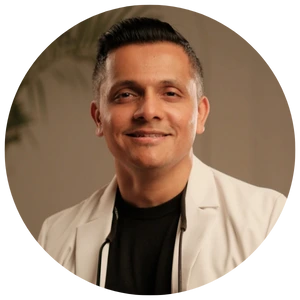
Dr. Anand B. Shah
- 10 Years of Experience
Dr Anand B. Shah, is a board-certified Maxillofacial & Craniofacial surgeon who is highly skilled in cosmetic facial and hair restoration surgery and has exclusively practised the same, internationally and nationally.
